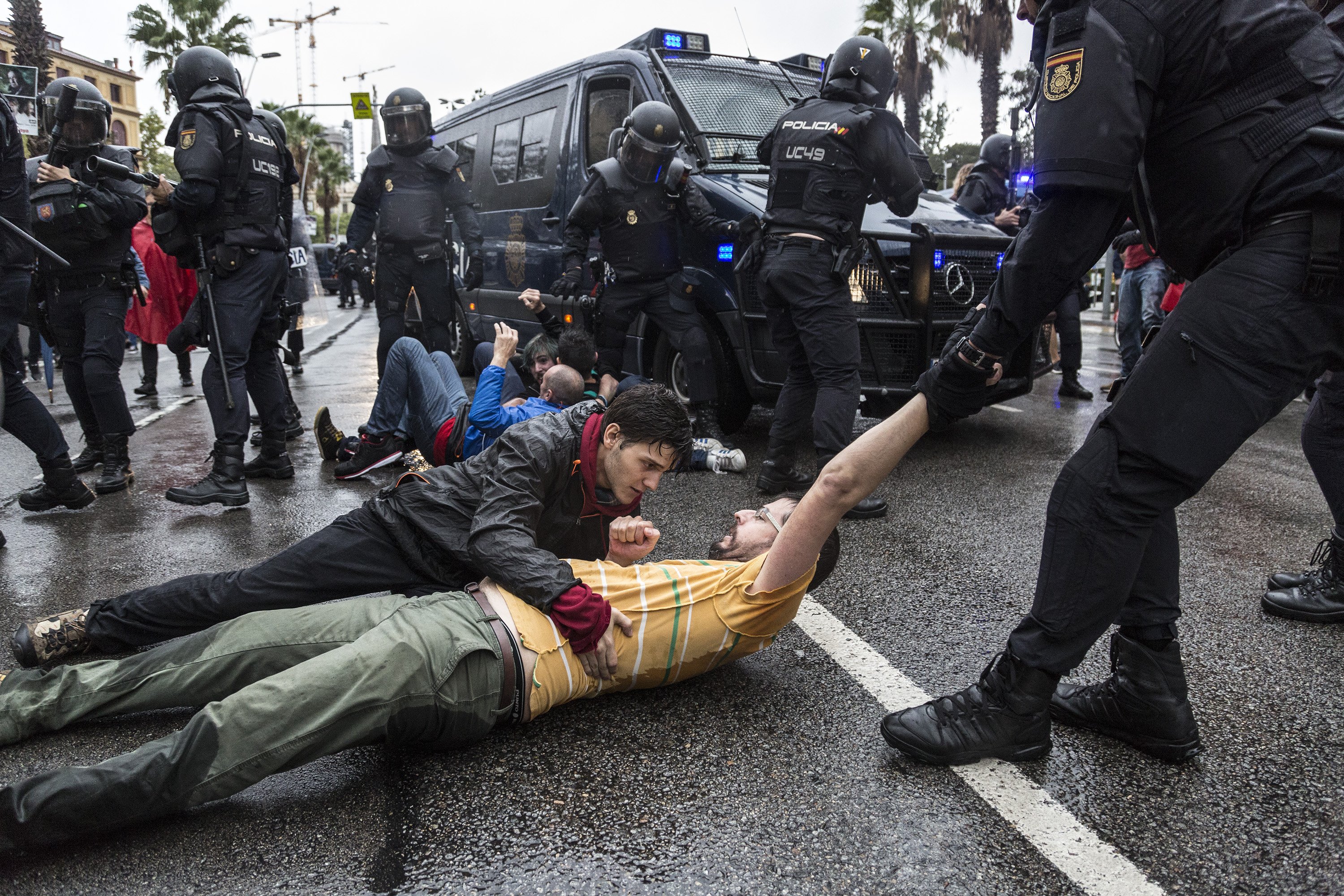Latin American television channel Telesur has broadcast a half-hour report that dismantles Spain's assertion that last year's Catalan independence push was characterised by its violence. The documentary, entitled Relato de lo inexistente ("Narrative of something non-existent") explains how the Spanish state created a false story about the Catalan referendum on 1st October, 2017 —and of the events on the days before and after— in order to be able to repress the independence movement.
The Spanish-language current affairs report accuses "the media apparatus of the Spanish state" of fanning the discourse of violence and encouraging the pro-Spanish political parties to adopt it "rapidly" in order to allow an invented narrative become accepted.
The video gives a chronological summary of the months since the crisis began. It shows events from when the 'Jordis' - civil leaders Jordi Sànchez and Jordi Cuixart - attempted to dissolve the mass protest on 20th September 2017 outside the Catalan economy ministry (when the Spanish prosecutors accuse them of doing just the opposite), through to the police repression during the referendum of 1st October. The documentary shows images of the police charges against Catalan voters while the voice of the then-deputy PM of Spain, Soraya Sáenz de Santamaría, is heard praising the job done by the police as "professional and proportionate". A voice-over explains that more than 2 million people succeeded in defying the Spanish government's preventive efforts and holding a referendum which, hours later, Mariano Rajoy denied had ever happened.
The report explains that the narrative of violence committed by the independence movement was taken apart by the German and Belgian justice systems and, that in the face of this setback, the Spanish state stepped even harder on the accelerator, pointing the finger at the CDR (Committees for Defence of the Republic) activist groups as the culprits for the "social fracture in Catalonia".
The video includes interviews with the editor of the newspaper Ara, Esther Vera, photojournalist Jordi Borràs, and international law professor David Bondia.

